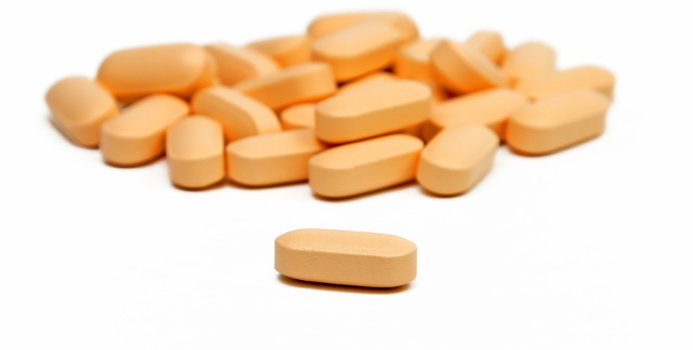Fat soluble vitamins are needed for everyday functions of the body. They include vitamins A, D, E and K. Aborbed from the small intestine in fat globules (also known as chylomicrons), the vitamins are processed by the lymphatic system of the small intestines. The vitamins are then absorbed into circulation. As necessary as these vitamins are for overall health, fat soluble vitamins in excess can lead to many unwanted, possible side effects.
While water soluble vitamins are simply eliminated naturally if not used by the body, fat soluble vitamins are stored in fat tissues and in many organs of the body. Once the fat soluble vitamins have been stored, they can remain there for very long amounts of time. Chronic overconsumption of a fat soluble vitamin--and its subsequent storage in the body--can result in a condition called hypervitaminosis. What then happens depends on the type of vitamin that was taken in excess.
Vitamin A
Vitamin A, also known as retinol, should be consumed in moderation. Supplements aren't usually needed for those consuming a Western diet. Adults should not have an intake of Vitamin A that's higher than 3,000 mcg.
Side effects that occur in the body when too much vitamin A is consumed include:
- severe growth retardation
- hair loss
- blurred vision
- the enlargement of the liver and spleen
It may also result in bone pain. Vitamin A toxicity may also increase hip fracture risks. For pregnant women, a vitamin A overdose can result in birth defects for her baby.
Vitamin D
Vitamin D is a necessary nutrient. While it's very important for the development of healthy bones and teeth in children, it's very important that they don't overconsume this vitamin. Many milk and soy products are fortified with vitamin D. With vitamin supplements also providing a healthy dose, it's something that parents should be aware of when planning a child's diet.
When the overconsumption of vitamin D is not in high doses, one may only experience nausea and irritability. However, vitamin D toxicity in its severe form may lead to slowed mental and physical growth. It may also lead to kidney damage and complications.
Vitamin E
Vitamin E is necessary for health; the body uses it as an antioxidant. However, as wiith all of the other fat-soluble vitamins, too much can put one's health at risk. People who are taking blood-thinning medications should monitor their vitamin E intake. While vegetables with vitamin E are safe, especially in moderation, those individuals should not take supplements of vitamin E in any form. Severe overconsumption of vitamin E can lead to nausea and digestive tract disorders in any individual.
Vitamin K
Vitamin K1 (phytonadione) and vitamin K2 (menaquinone) are not clearly established as potentially toxic, but vitamin K3 (menadione) is. If one consumes an excess of vitamin K3, they can experience many detrimental side effects. It can negate he effects of anticoagulants, and this can spell disaster if they're needed for one's health. It can cause porphynuria; if a pregnant woman gets this, her baby could be born jaundiced. It can cause a side effect as minor as vomiting, or it may cause thrombosis.



